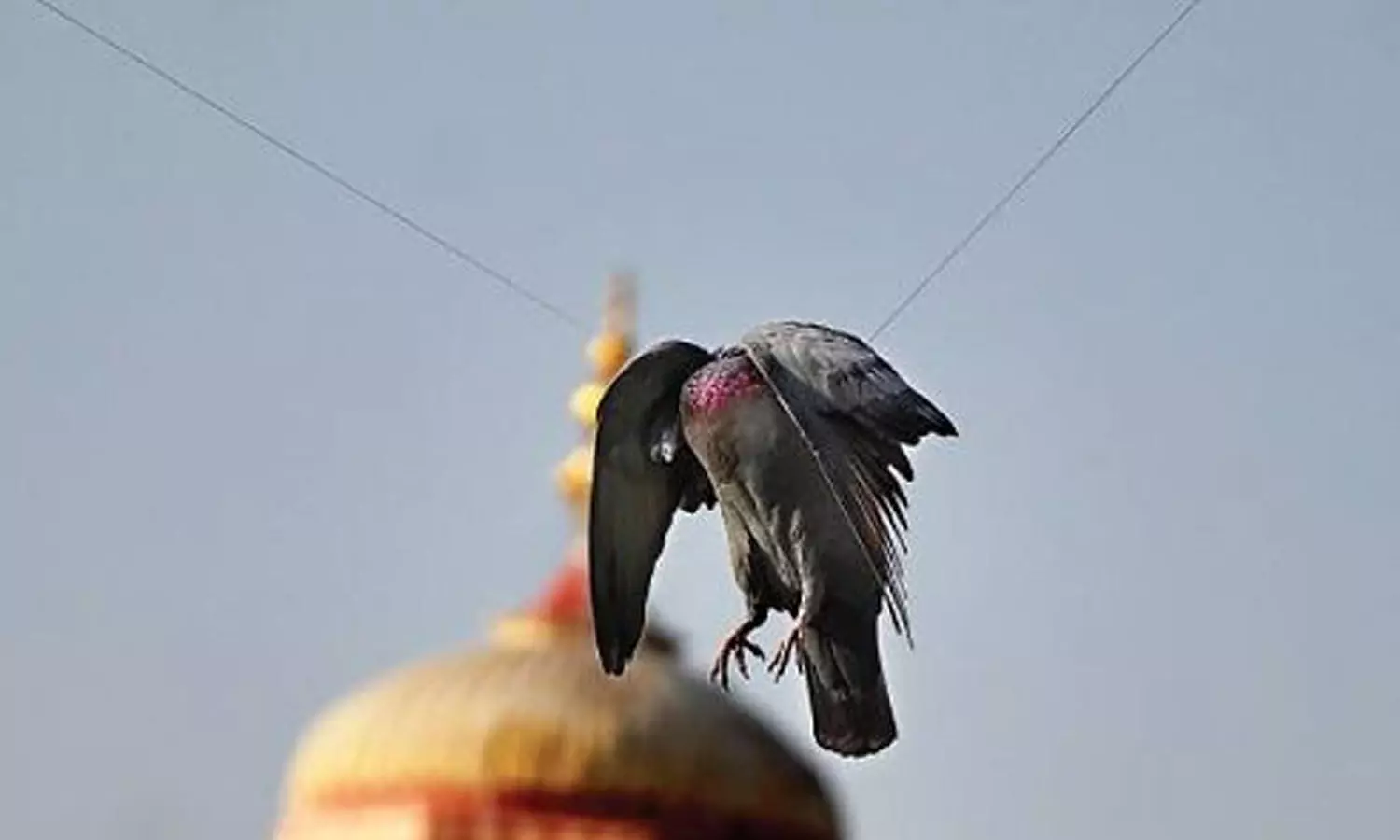Telangana again prohibits Chinese manja for Sankranti kites
Improperly tossed manjha has been known to cut the fingers, hands, and throats of kite flyers and motorcyclists with equal ease

HYDERABAD: The Telangana state government once again prohibited the use of Chinese manja/synthetic thread at the Sankranti kite festival on Wednesday because it poses a major threat to the safety of animals, birds, humans, and the environment.
According to the Telangana forest department, throughout the years, glass coated Nylon manjha has harmed several birds, animals, and humans, inflicting major injuries and/or prolonged, painful deaths.
For several years, Nylon/Synthetic thread and glass-coated manjha have been used for kite flying during Sankranthi. Many persons, including young children, have been harmed or killed as a result of such manjha. The synthetic manjha remains in the environment for a long time as a toxic pollutant on tree tops, electric wires, and roof tops long after the festival, causing injuries and even deaths.
Improperly tossed manjha has been known to cut the fingers, hands, and throats of kite flyers and motorcyclists with equal ease. Many local traditional cotton manjha craftsmen have lost their livelihoods as a result of the invasion of Nylon and glass-coated manjha.
Why should we shun Chinese Manja
The National Green Tribunal, in orders dated 11.07.2017 in O.A. No. 384 of 2016 and O.A. No. 442 of 2016, ordered a total ban on Manjha or tread for kite flying that is made of Nylon and any synthetic material and / or is coated with synthetic substance and is non-biodegradable. The NGT further instructed that the manufacture, sale, storage, procurement, and use of synthetic Manjha / Nylon thread and all other comparable synthetic thread used for kite flying be prohibited.
The Government of Telangana, in exercise of its powers under Section 5 of the Environment (Protection) Act, 1986 imposed a complete ban on the procurement, stocking, sale and use of nylon- thread commonly called ‘Chinese Dor’ or other synthetic (non-biodegradable) thread coated with glass or other harmful substances used for kite flying, with effect from January 13, 2016.
Action taken by Telangana Forest Department
The Telangana Forest Department, in collaboration with other government departments such as the police, the GHMC, the Pollution Control Board, non-governmental organisations (NGOs), and wildlife conservationists, is conducting a public awareness campaign by distributing posters in Telugu, English, and Urdu explaining the harmful effects of synthetic manja and requesting that manja and kite shop owners not stock or sell synthetic manja.
In order to ensure that the ban order is followed throughout the festival season, the Forest Department deploys about five to six mobile parties with uniformed officials and NGOs to visit the stores selling this Manja. 1,391 kg of synthetic manja, worth a total of 28 lakh rupees, have been seized to date.
Penalities for violations
According to Section 15 of the Environment (Protection) Act, 1986, anyone found in violation of the Act's orders or instructions faces imprisonment for up to five years, a fine of up to one lakh rupees, or both.
Causing harm or death to wild animals and birds with synthetic manjha constitutes hunting under section 9, which was punishable under the Wildlife (Protection) Act, 1972 under section 51 with imprisonment for three to seven years and a fine of not less than Rs.10,000.
Domestic animal cruelty is punishable under the Prevention of Cruelty to Animals Act of 1960. Such cases should be reported to the Telangana State Forest Department's 24-hour helpline at 1800-425-5364 or 040-2323-1440.



